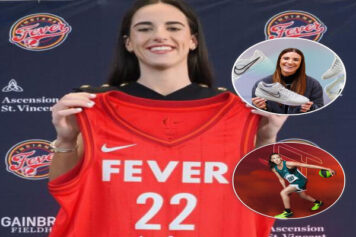Detroit, starring John Boyega, Algee Smith, Anthony Mackie, Jason Mitchell, Peyton Alex Smith and Laz Alonso, tells the horrific story of a terrorist act carried out by the Detroit Police Department at the Algiers Hotel during the 1967 riots. When this horrific night comes to an end, three young men lay dead in pools of blood.
The thing about coming up with cinematic offerings based on true to life events is that things are seldom exactly as folks remember. When it comes to the traumatic experiences that came out of surviving the 1967 Detroit Rebellion, there are brothers and sisters living, working, living and breathing in Motown who still recall those tumultuous times that history says happened 50 years ago, yet science says these traumatic experiences literally are still part of us today.
I was speaking with a social activist friend of mine recently and he helped me put flesh on a theory I had been kicking around the ol’ noggin for a while. He reminded me that a great deal of what historically marginalized populations call “culture” is in fact a visceral reaction to oppression. The way he broke it down to me, oppression, pain and trauma are the very brick and mortar that much of African American culture, as well as many other cultures from across the globe, are comprised. This is why it is so important for storytellers to have an intimate relationship with the subject matter because that greatly lends itself to the cultural authenticity of the finished product.
Detroit Trailer # 2 (2017) | Movieclips Trailers
Detroit Trailer #2 (2017): Check out the new trailer starring John Krasinski, John Boyega, and Anthony Mackie! Be the first to watch, comment, and share trailers and movie teasers/clips dropping soon @MovieclipsTrailers.
When we look at the origins of gospel music as the field calls of slaves containing lessons, warnings and escape plans, as well as similar themes that exist in the music and culture of people of African descent throughout the Western Hemisphere, these troubling circumstances become a part of us.
So it was only apropos that there was a whole bunch of hollering and consternation when the film Detroit first came to the attention of the public. The fact that Kathryn Bigelow, known for The Hurt Locker and Zero Dark Thirty, was going to helm the project didn’t help very much either.
I first screened the film in New York City. The emotions that it brought forth were so stirring that I initially suspected that I was being too sensitive, that perhaps I allowed my prior studies on white supremacy to cloud my cinematic palate and that I had innate biases against the film prior to even seeing it.
So, I perused the available reviews that had already been published. Detroit got positive reviews from across the mainstream media zeitgeist, from Rolling Stone to Rotten Green Tomatoes to the Hollywood Reporter. Long story short, I thought I was trippin’ and vowed to give the film another look. However, when I screened it for a second time, this time at a theater in the city of Detroit, those very same emotions were revisited tenfold.
DETROIT on Twitter
See why #DETROITmovie is a must-see. In select theaters this Friday, everywhere August 4. https://t.co/jZ2FDo9Epm https://t.co/47zGdWLMZu
Having seen both Zero Dark Thirty and The Hurt Locker, I was already aware of the types of things that the director was willing to do to garner an emotional response from the viewer. As was the case with her prior, critically-acclaimed works, Detroit is a very violent movie. That’s first and foremost.
Because most of the violence is perpetrated against people who share a similar ancestry as I, my insides were tied in a knot throughout the entire film. Much of the story takes place from the viewpoint of three officers who are charged with patrolling the streets during the first days of the insurrection.
Played by Will Pouter, Jack Reynor and Ben O’Toole, the Detroit police officers are both frustrated and confused as looters take advantage of the breakdown of law and order. Within 20 minutes of his appearance on screen, the character played by Tyler James Williams of Everybody Loves Chris fame suffers a most degrading death.
He pleads with an elderly woman who finds him not to call 911 but to summon his wife instead. I know it’s acting. But as Tyler painfully struggled, moaned and cried for his wife, I braced myself for more dehumanizing scenes like this to play out. Because the riots provided the backdrop for the movie, as well as a catalyst and cover for the actions of the police officers, there are many scenes of blue on black brutality that are spread throughout the film.
Multiple scenes of the police beating black pedestrians indiscriminately, in scenes showing black folks as the sole rioters at a time when Detroit was still 60 percent white, and several scenes depicting the Detroit Police Department as virtually colorblind.
Man, I’m not even sure that the term colorblind even existed in 1967. That’s how pervasive and overt racism was in America at that time.
There were numerous scenes and situations that ring of contrived contemporary revisionism. They also struck me as being indicative of a white savior paradigm that inevitably creeps into just about every contemporary cinematic work centered on race relations in America.
DETROIT on Twitter
We have to be the adults and fix it” – @AnthonyMackie #DETROITmovie https://t.co/piWFUYNSjA
Additionally, it was difficult for me to watch and once again be told that black people in America cannot save themselves, that our salvation is eternally at the behest of a white America who, for the most part, doesn’t even believe that racism is a problem.
Bigelow’s signature heavy-handedness as Detroit’s Director made some of the scenes of blue on Black violence unbearable to watch. Where Alfred Hitchcock would insist on leaving something to the viewers’ imagination, Bigelow assaults the emotions of the viewer, forcing us to either capitulate to its message or be repulsed by it.
In the aftermath of the deaths of Philando Castile, Mike Brown, Freddie Gray, Jordan Edwards and legions of others who have died at the hands of overzealous and incompetent policing, Detroit is a difficult film to watch. But the acting was magnificent.
I don’t think I could stomach watching the movie again. However, it’s the perfect film for those who have a hard time conceptualizing how American institutions are inherently racist to the core when it comes to administering freedom, justice and equality to its own citizens of color.



